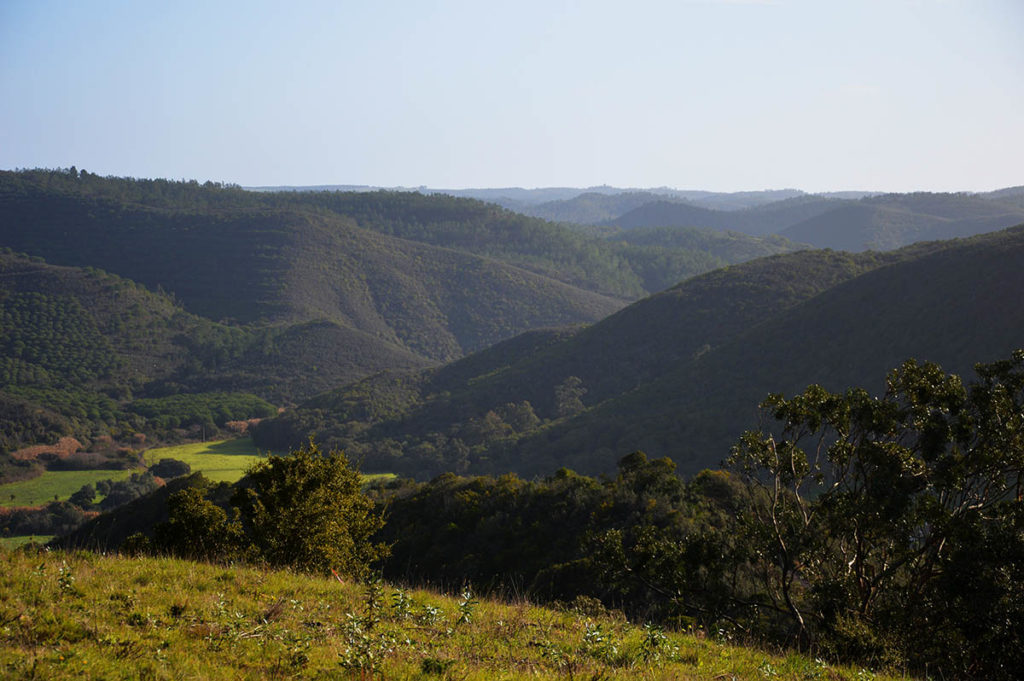The main Portuguese Environmental Non-Governmental Organizations (NGOs) consider that the new organic law of the Institute for the Conservation of Nature and Forests (ICNF), published last Friday, March 29, «represents an obstacle to the Institution's mission and a weakening of nature conservation in Portugal”.
In practice, "this new organic law contributes to the ICNF becoming more and more a complex and bureaucratic management entity, and less and less a nature conservation authority with responsibilities for terrestrial and marine protected areas", emphasizes the ANP |WWF, APECE, FAPAS, League for the Protection of Nature (LPN), QUERCUS, SPEA and SCIAENA, in a statement sent to the newsrooms.
These NGOs note, with displeasure, that, with the new law, “the ICNF's mission is increasingly limited to land areas, leaving the management of part of the marine protected areas out of its purview”.
Thus, the management of Protected Marine Areas and the Natura 2000 Network is now shared with the Directorate-General for Natural Resources, Security and Maritime Services (DGRM) and the Portuguese Institute of the Sea and the Atmosphere (IPMA), «but It is clear what the responsibilities of each of these entities are, which calls into question the very management and efficiency of the Protected Areas and the Natura 2000 Network, with regard to their conservation objectives».
“The role of IPMA is not clear, as it is a State laboratory for research and decision support. In fact, neither the DGRM nor the IPMA have, in their mission and organization, objectives and technical competences for nature conservation», state the NGOs.
They also note that the creation of new classified marine areas not adjacent to the coastline will not be the responsibility of the ICNF, something that the NGOs consider «concerning from the point of view of the designation and integrated management of the Marine Protected Areas network».
«The conservation of the marine environment must be, clearly and unequivocally, the competence of the National Nature Conservation Authority, and only in this way can compliance with European directives such as the Birds and Habitats directive be ensured. It is essential that the ICNF's articulation with other entities is effectively established and under the management of that institution», they add.
For ANP|WWF, APECE, FAPAS, LPN, QUERCUS, SPEA and SCIAENA “it is also clear that the new ICNF organic structure has an unequivocal mandate to work more on structural prevention and management of rural fires, one of the few positive points of this new law". However, this mandate “cannot call into question other fundamental attributions to guarantee the effective conservation of nature in Portugal”.
The NGOs see as "positive" the fact that the ICNF's activity, as a national authority, is "decentralized to bring the management of nature and forests closer to the mainland actors", but warn that "it can also be something worrying and even dangerous for nature if it is not accompanied by effective monitoring and adequate strategic planning'.
On the other hand, the NGOs are concerned that this change could "be preparatory to the decentralization of nature conservation competences from the central state to local authorities".
The issue of preference for a single governance model for protected areas which, in the opinion of the NGOs, “does not take into account the individual context of each Protected Area”, is also “worrying”.
Therefore, the NGOs claim to want to be "involved in the preparation of the diploma for decentralization of nature conservation competences within the scope of the ongoing decentralization process".
There are also longstanding concerns about "ICNF's under-budgeting and budget under-execution in recent years, along with an unclear governance model for Protected Areas."
The NGOs consider it “unacceptable that they have not been heard in this revision of the ICNF organic law, as they have played a relevant and fundamental role in the conservation of national biodiversity, often in partnership with ICNF and other State bodies”.
Thus, the NGOs ask the President of the Republic and the Government to "go back and review" the ICNF organic law, giving this Institute "competencies to ensure an effective conservation of terrestrial and marine nature in Portugal".
In addition, the NGOs will ask the parties with seats in the Assembly of the Republic to carry out a parliamentary appraisal of the organic law, presenting their concerns and the need for parliamentary appraisal.



















Comments